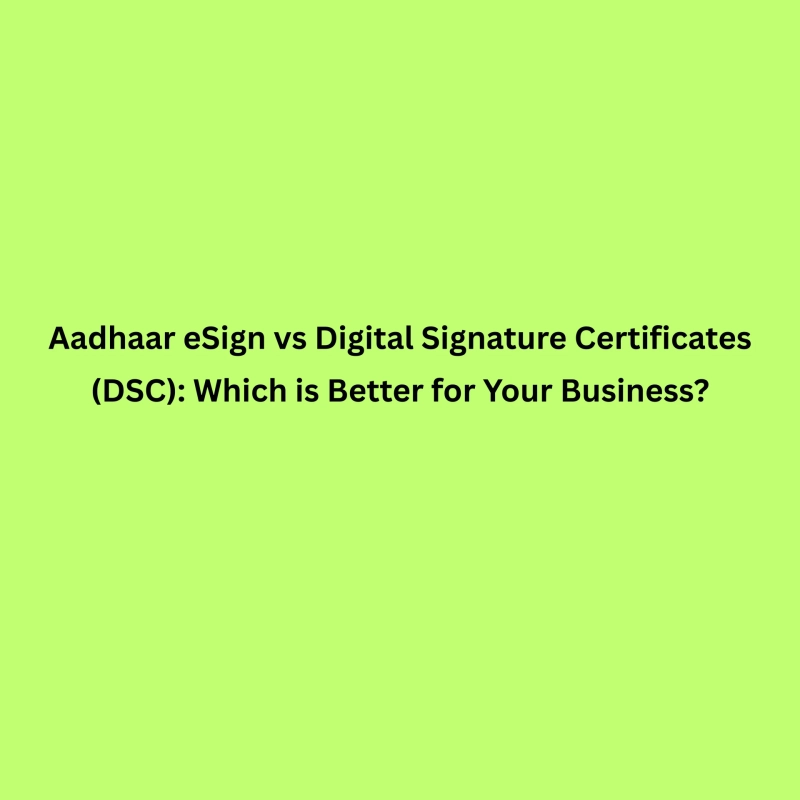Aadhaar eSign and Digital Signature Certificates (DSC) are two widely used methods for signing documents electronically in India. Both are legally valid under the IT Act, but they differ in terms of how they work, cost, ease of use, and suitability for business needs.
If you're wondering which one is the better option for your business, this guide will help you compare the two and choose what fits best.
What is Aadhaar eSign?
Aadhaar eSign is a cloud-based digital signing service that uses your Aadhaar number and a one-time password (OTP) to authenticate your identity and sign documents electronically. It requires no physical token or software installation.
It’s ideal for quick, remote signing — especially for individuals, freelancers, and small businesses who need a simple, low-cost way to sign official documents online.
What is a Digital Signature Certificate (DSC)?
A Digital Signature Certificate is a secure digital key issued by a Certifying Authority (CA) like eMudhra, Sify, or NSDL. It is typically stored on a USB token and is used to digitally sign documents, especially in legal, financial, or government-related work.
DSCs are widely used for filing income tax returns, submitting tenders, signing invoices under GST, and interacting with various government portals.
Key Differences: Aadhaar eSign vs DSC
Authentication
Aadhaar number + OTP
Password-protected USB token
Setup Time
Instant (via OTP)
Requires purchase and activation
Ease of Use
Very user-friendly
Requires installation and drivers
Cost
Often free or low-cost per sign
Higher upfront cost (₹500–₹2000+)
Storage
Cloud-based
Physical USB token
Use Cases
Basic document signing, KYC, forms
High-security transactions, e-tenders
Legal Validity
Legally valid under IT Act
Legally valid under IT Act
Best for
Individuals, startups, online forms
Businesses, professionals, compliance
Pros and Cons Aadhaar eSign – Pros:
- No hardware needed
- Quick and easy to use
- Great for bulk and remote signing
- Cost-effective or free for limited use
Cons:
- Requires mobile number linked to Aadhaar
- Not accepted on all government portals
- Limited validity per sign (not long-term like DSC)
DSC – Pros:
- High level of security
- Accepted on all official portals (e.g., GST, MCA, ICEGATE)
- Long-term validity (1–3 years)
Cons:
- Higher setup cost
- Needs technical setup (USB token, drivers)
- Not ideal for on-the-go use
Which Should You Choose?
- Choose Aadhaar eSign if:
- You run a small business or startup
- You sign documents occasionally
- You want a paperless, quick solution without physical hardware
- Choose DSC if:
- You need to file GST, MCA, or government tenders
- You require high-trust digital authentication
- You're dealing with secure or high-value transactions regularly
Can You Use Both?
Yes! Many businesses use both depending on the need. For example, you might use Aadhaar eSign for employee onboarding or basic approvals and a DSC for tax filings or legal contracts.
Final Thoughts
Both Aadhaar eSign and DSC have their place in a modern business workflow. The best choice depends on your specific needs — speed and convenience vs. security and compliance.
For small businesses and individuals looking for a simple, fast, and affordable digital signing solution, Aadhaar eSign offers a smart alternative to traditional DSCs.


